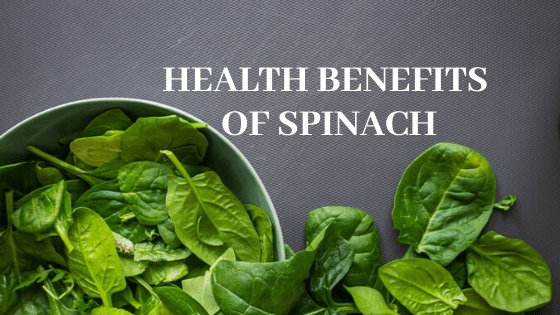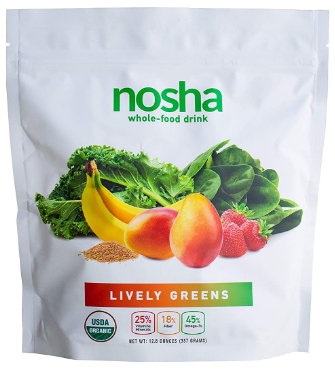Everything You Need to Know About the Benefits of Spinach
“Spinach is a superfood with a high nutritive value to help with the prevention of diseases.”
Spinach is one of the inevitable vegetables with its nutrients and health value that you cannot resist. The benefits of spinach range from disease prevention to the general maintenance of a healthy body. Individuals love it for the unique nutrient features that it presents. Spinach is the most right vegetable you need to have in your dinner table; it will aid in the digestion of the meal you consume and most importantly provide Vitamin K which is hardly found in other vegetables.
Spinach is thought to have originated from ancient Persia about 2000 years ago. The green leafy vegetable belongs to the Amaranthaceous family. It can either be consumed while still fresh or stored using preservation techniques like freezing and canning, hence used at a later period. You can select your most preferable type of Spinach from the following three types; savoy, semi-savoy or flat Spinach. Consumption of Spinach can be either raw or cooked. It’s important to note that steaming reduces its oxalate value. More so, its taste differs from when it’s eaten raw or when cooked.
Spinach boasts numerous types of nutrients such as vitamins A, C, and K, elements such as magnesium, calcium, protein, fiber, and iron. These nutrients and minerals aid in bone health, healthy skin, digestion, and better eyesight. A single leaf of Spinach may cater to almost all your nutrients requirements in a day. More reason as to why you should consider adding it to your diet.
This article will dig deep into the benefits of Spinach, its nutrition value, and a range of ways in which you can incorporate it into your diet.
10 Health Benefits of Spinach
Spinach is packed with nutrients that perform or play an essential role in adding nutritional as well as medicinal value on human life. A review of the health and nutritional benefits of Spinach depicts a wide range of options. You can also take top liquid vitamins to improve your health.
Just like many dark, leafy greens, Spinach contains nutrients that have many health benefits. It is a perfect vegetable for anybody trying to boost their health as it offers the benefits enumerated below.
1. Protects Eye Health

Spinach contains vitamin A which plays an essential role in guaranteeing eye health by protecting it from oxidative damage. As you are all aware, vitamin A is a fat-soluble vitamin. Therefore, it would be interesting to note that sautéing Spinach with healthy fats like olive oil or complimenting it with other foods that contain fats will improve the absorption of vitamin A in Spinach. This is regarded as one of the best benefits of spinach.
2. Prevents Hair Loss

We all would love to maintain hair and would feel bad if we became bald heads. Well, worry no more because Spinach is a perfect non-animal source of iron. As you know, most cases of hair loss for women are attributed to iron deficiency. To prevent such defects, one should take food rich in iron, like Spinach.
3. Boosts Bone Health

Spinach is a valuable source of vitamin K, which has been scientifically proven to improve bone density. Do you always easily have fractures? If yes, then it means you could be at risk of having osteoporosis. So, next time, make an effort of including Spinach in your diet as it will improve the density of those bones and could minimize instances of bone fractures.
4. Eases Constipation
Most people tend to experience bathroom problems such as constipation. If you are among those having constipation issues, you should consider taking Spinach. Among the benefits of spinach is that it contains soluble and insoluble fiber, which can help ease you through the blockage. In one study, it is revealed that one cup of cooked Spinach comprises 4.3 grams of fiber. This represents 17 percent of the minimum recommended uptake each day.
5. Promotes Fetal Development
Spinach contains Folic acid, which is an essential nutrient required for fetal development is among the nutrients of Spinach. Expectant women should eat Spinach since folic acid minimizes the risk of any defects of the unborn within their nervous system. Other studies indicate that the iron in Spinach could be useful in the development of fetus, neonate, infant, and child. Since the iron requirement is high during the early stages of life due to its criticality in the production of new red blood cells, muscle cells, and muscle development, expectant women should increase their uptake by eating foods such as Spinach.
6. May Boost Brain Function
Spinach contains some nutrients such as vitamins K and A, folate and lutein that tend to promote brain health and slow down cognitive decline. If you feel depressed and stressed, you should include Spinach in your diet as a study notes that Spinach could have anti-stress and anti-depressive effects. This is an aspect that can be attributed to the fact that Spinach can reduce blood levels of the hormones responsible for stress levels. With reduced stress and depression levels, the brain will function properly.
7. Asthma Prevention
A study shows that the risk of individuals with a high intake of beta-carotene contracting Asthma is lower than that of those who consume less or zero beta-carotene. Spinach among others is a source of beta carotene; hence it’s healthy to consume it when you have asthma.
8. Promotes Heart Health

Spinach contains vitamin C, which is a remedy for cardiovascular diseases. Luten content in Spinach is responsible for preventing artery walls thickening, reducing heart attack risks. It has a nitrite compound that is known for its ability to prevent fat deposition and also to cure heart disease associated with fats deposition. If you are suffering from high blood pressure, Spinach is the most recommended vegetable for you as it contains high potassium content. Foods rich in potassium regulate blood pressure by blunting the effects of sodium.
The more potassium intake in the body, the more sodium is processed out of the body. Interestingly, potassium relaxes the walls of blood vessels which helps lower blood pressure. Spinach also contains huge amounts of nitrates which have been found to help decrease the risk of heart disease and moderate blood pressure levels. One study backed up this claim by indicating that eating leafy green vegetables like Spinach would put you at a better position in curbing high blood pressure and other diseases associated with the heart.
9. Prevention of Cancer

We all agree that cancer has become so prevalent in the world. It is, therefore, appropriate to eat food such as Spinach as it has been proven to contain important nutrients that are promising in the prevention of various types of cancer. Multiple nutrients in Spinach such as folate, tocopherol, and chlorophyllin act in distinct ways to protect patients suffering from cancer. If you are suffering from prostate cancer, you have a reason to smile since recent studies have revealed that it is effective against it.
10. Prevents Bacteria and Viruses Invasion
Spinach boasts of a high vitamin A content that prevents some bacteria and viruses from getting through into your skin since it helps your skin and mucous membrane to repel them. Therefore, you could start incorporating Spinach into your diet if you want to boost your immune system
Nutrition of Spinach
Below, we have constituent nutrients of Spinach per 100 grams;
-
-
- 23 grams of calories
- 3 grams of protein
- 4 grams of carbs
- 2 grams of fiber
- 99 mg of calcium
- 3 mg of iron
- 79 mg of magnesium
- 49 mg of phosphorous
- 558 mg of potassium
- 28 mg of vitamin C
- 194 mcg of folate
- 9380 IU of vitamin A
- 12200 mcg of lutein and zeaxanthin
- 483 mcg of vitamin K
-
The benefits of Spinach do not stop at the nutrients above. A study indicates that eating Spinach is valuable for upholding healthy skin, hair, and strong bones and also aids with digestion, decreasing the risk for heart disease hence improving blood glucose levels in controlling diabetics.
Eating Habits
We are all used to the tender and juicy Spinach added to the salads we prepare. But, the benefits of Spinach should not be limited to that. Instead, we could adopt some other ways as listed below to enjoy its green goodness. If you want to add more fiber to your diet, you can utilize the following strategies.
Stir fry:
You could heat chopped garlic and olive oil and add spinach leaves to it and mix it well. You can add pepper and any sauce of your choice then garnish it with some seeds and nuts forming a delicious snack.
Scrambled:
Have a unique way of eating Spinach by scrambling a large handful with eggs. For lovers of scrambled, this allows you to blend in the nutritious leafy vegetable with eggs.
Blend:
If you love smoothies, this could be a perfect opportunity to try something new. Blend a handful or two if Spinach into a berry smoothie. It is best for people with kids since the deep color of berries will cover the green leaves concealing its presence. Your kids will enjoy a smoothie with a nutritious value-added.
Stirred into hot dishes:
Spinach can be stirred into hot dishes such as beans, hot soups, pasta dishes, and hot casseroles at the last minute. This will give the hot dishes a fantastic taste that leaves you yearning for more. Besides, it will improve the nutritional value of the dish, given the high value of Spinach.
Stacked up:
You could choose to add a layer of Spinach into a sandwich. Also, you could wrap instead of iceberg lettuce, making a perfect dish that spices up your eating.
Risks and Precautions
Generally, this vegetable is considered very healthy but may have some adverse effects on some individuals. We will highlight some of those effects so you can be on the safe side.
Kidney Stones:
Kidney stones often arise from a buildup of acid and mineral salt. Spinach is composed of high calcium and oxalates, which might result in a high accumulation of mineral salts and acids. People who are more prone to contracting prostate cancer should also limit the intake of Spinach.
Blood Clotting:
One of the nutrients in Spinach is Vitamin K, which is mainly beneficial in its role in blood clotting. Therefore, a massive intake of Spinach could lead to interference with blood-thinning medication. If you are taking blood thinners like Warfarin, you should seek advice from healthcare practitioners before taking large amounts of Spinach.
Inhibits absorption of iron and calcium:
Spinach contains oxalates which are renowned for their ability to bind to iron and form a compound called ferocious oxalates. These compounds could rid the body of essential minerals such as iron and calcium. Preventing the absorption of calcium and iron renders these nutrients available in Spinach irrelevant because an insignificant amount gets absorbed. Avoid excessive and continuous consumption of Spinach
Why Do We Recommend
This is a healthy and nutrient-rich food that you should include in your diet every day because of the many benefits of Spinach. It is best consumed as part of a well-rounded, nutritious diet. It’s not only required for healthy living but also serves as a medicinal extract. Spinach is an excellent source of vitamins A, B2, and B6, C, and K, which play essential roles in the human body.
It also contains minerals like iron and potassium, which regulate blood pressure as well as manganese which controls the brain and nerve function. Therefore, if you are looking for a vegetable that guarantees nutritious and medicinal value, then Spinach is your most preferred option.
Bottom Line
Spinach has been proven to be among the most nutritious leafy green vegetables. This vegetable benefits health in many ways as it may lower blood pressure, help asthmatic persons, promote fetal development, help prevent cancer, and boost brain functions.
Simply put, this is one of the vegetables that you can incorporate in your diet to reap nutritious and healthy benefits of Spinach. If you watched cartoons as a kid, then you know how Spinach helps Popeye!
Read Also:
- Everything You Need to Know About the Benefits of Mushroom
- Everything You Need to Know About the Benefits of Lemon
- Health benefits of watermelon, nutrients, and risks







